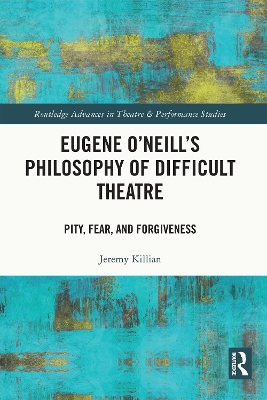
Eugene O'Neill's Philosophy of Difficult Theatre: Pity, Fear, and Forgiveness
Routledge Advances in Theatre and Performance Studies
No. of pages 184
Published: 2022
Add this book to your 'I want to read' list!
By clicking here you can add this book to your favourites list. If it is in your School Library it will show up on your account page in colour and you'll be able to download it from there. If it isn't in your school library it will still show up but in grey - that will tell us that maybe it is a book we should add to your school library, and will also remind you to read it if you find it somewhere else!
This book is part of a book series called Routledge Advances in Theatre And Performance Studies .
There are 184 pages in this book. This book was published in 2022 by Taylor & Francis Ltd .
This book is in the following series:
This book features the following character:
Eugene O'Neill
This book features the character Eugene O'Neill.


